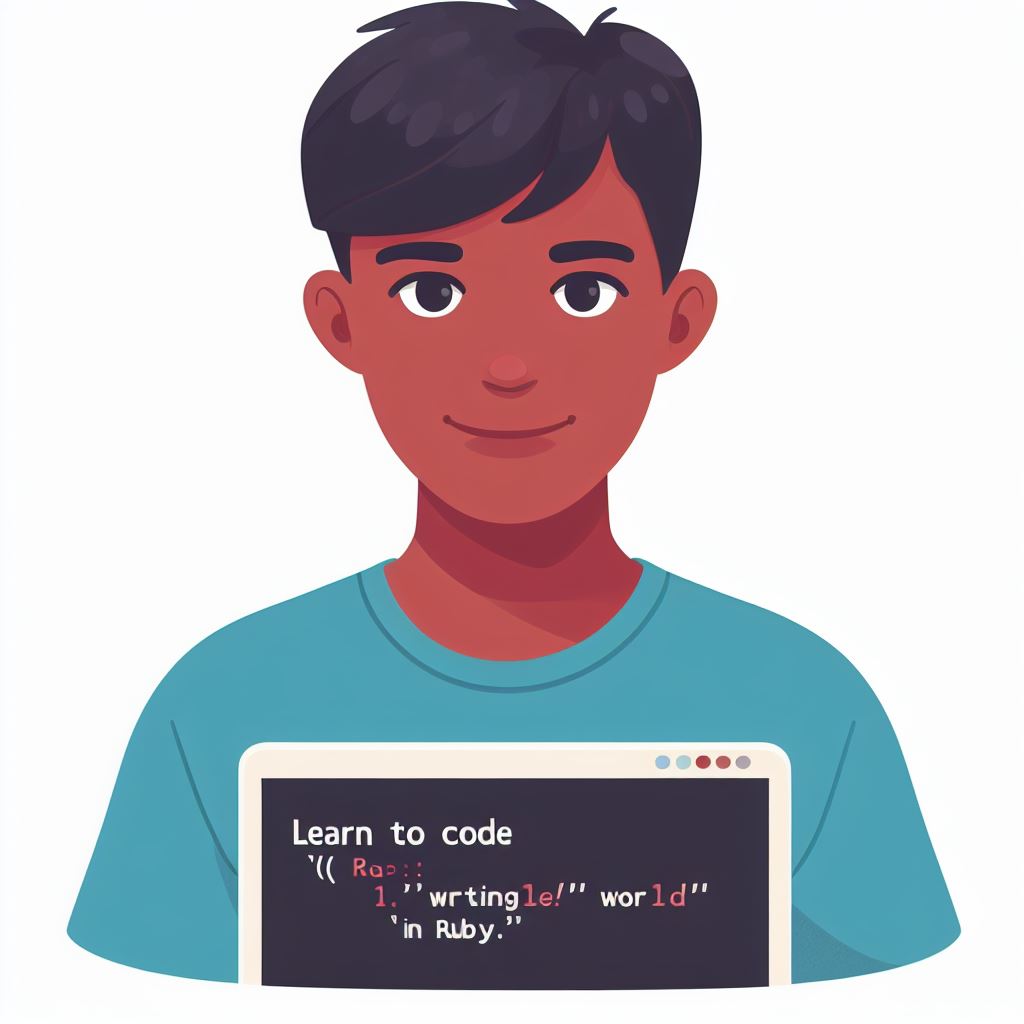Introduction
Portfolio projects play a crucial role in the development of entry-level coders, allowing them to showcase their skills and stand out in a highly competitive job market.
This blog post aims to highlight the significance of portfolio projects and their purpose for aspiring coders.
Importance of Portfolio Projects for Entry-Level Coders
- Showcasing Skills: Portfolio projects serve as tangible evidence of a coder’s abilities, allowing them to demonstrate their knowledge and expertise to potential employers.
- Practical Application: These projects provide entry-level coders with invaluable hands-on experience, enabling them to apply their theoretical knowledge in real-world scenarios.
- Demonstrating Passion: By creating portfolio projects, coders can showcase their dedication and passion for coding, leaving a lasting impression on recruiters and potential clients.
- Building a Strong Reputation: A well-curated portfolio projects an image of reliability, professionalism, and dedication, which can significantly enhance the coder’s reputation in the industry.
- Enhancing Problem-Solving Skills: Engaging in portfolio projects allows entry-level coders to encounter various challenges, fostering their problem-solving abilities and adaptability.
Purpose of the Blog Post
The purpose of this blog post is to emphasize the importance of portfolio projects as a valuable tool for entry-level coders to gain recognition, increase their chances of employment, and accelerate their career growth.
Therefore, portfolio projects hold immense significance for entry-level coders, providing them with opportunities to showcase their skills, gain practical experience, and build a strong reputation.
Aspiring coders should prioritize developing a diverse and compelling portfolio to enhance their employability and stand out in the competitive coding industry.
Definition of portfolio projects
Portfolio projects are coding projects that showcase a developer’s skills and abilities.
They are typically created to demonstrate a coder’s proficiency in different programming languages and technologies.
Portfolio projects serve as a visual representation of a coder’s work experience and skill set.
What portfolio projects are
A portfolio project is a coding project that is specifically designed and developed to showcase a coder’s abilities and expertise.
It serves as a way for entry-level coders to demonstrate their skills to potential employers and clients.
Examples of portfolio projects
There are various types of portfolio projects that entry-level coders can create:
- Responsive web applications: These projects demonstrate a coder’s ability to create web applications that adapt to different screen sizes and devices.
- E-commerce websites: These projects showcase a coder’s skills in building online shopping platforms with secure payment systems, user authentication, and product catalog management.
- Mobile applications: These projects demonstrate a coder’s proficiency in creating mobile apps for iOS or Android platforms, showcasing features like user interfaces, data persistence, and integration with APIs.
- Game development: Portfolio projects in game development exhibit a coder’s abilities in creating interactive and visually appealing games using various game engines and programming languages.
How portfolio projects are different from regular coding projects
Portfolio projects differ from regular coding projects in several ways:
- Purpose: The primary goal of a portfolio project is to showcase a coder’s skills and attract potential employers or clients, whereas regular coding projects focus on specific functional requirements.
- Design and aesthetics: Portfolio projects often prioritize visually appealing designs, user-friendly interfaces, and intuitive user experiences, whereas regular coding projects may focus more on functionality over aesthetics.
- Level of complexity: Portfolio projects may involve more complex features and technologies to demonstrate the coder’s capabilities, whereas regular coding projects tend to focus on solving specific problems or meeting specific business needs.
- Documentation and presentation: Portfolio projects usually include detailed documentation and explanation to allow viewers to understand the coder’s thought process and decision-making, whereas regular coding projects may have minimal documentation.
Most importantly, portfolio projects play a crucial role for entry-level coders by showcasing their skills, creativity, and potential to prospective employers or clients.
By creating portfolio projects, entry-level coders can demonstrate their proficiency in programming languages, frameworks, and technologies, while also showcasing their problem-solving abilities and design aesthetics.
These projects serve as tangible proof of a coder’s capabilities and provide a competitive edge in the job market.
Tech Consulting Tailored to Your Coding Journey
Get expert guidance in coding with a personalized consultation. Receive unique, actionable insights delivered in 1-3 business days.
Get StartedRead: Entry-Level Coding Jobs: Remote vs In-Person Opportunities
Benefits of portfolio projects for entry-level coders
Creating portfolio projects is an essential step for entry-level coders as it offers a range of advantages:
Displaying coding skills and expertise
One of the key benefits of portfolio projects is the ability to showcase coding skills and expertise.
Rather than simply stating their proficiency in coding languages on a resume, entry-level coders can provide tangible evidence of their abilities through completed projects.
Demonstrating problem-solving abilities
Furthermore, portfolio projects allow entry-level coders to demonstrate their problem-solving abilities.
Employers often assess a candidate’s capability to identify and resolve coding issues.
By presenting projects that required innovative solutions, coders can show their problem-solving skills in action.
Providing real-world examples
Additionally, portfolio projects provide real-world examples for entry-level coders, simulating the challenges faced by professionals in the industry.
This gives coders an advantage as they can present their experience with practical coding tasks, making them more aware of the demands of real-world projects.
Differentiating oneself from other candidates
Another significant benefit of portfolio projects is the ability to differentiate oneself from other candidates.
As the job market for coders becomes more competitive, having a portfolio becomes an essential component of a compelling job application.
It highlights a coder’s commitment to their craft and their willingness to go the extra mile.
Building a professional online presence
Lastly, portfolio projects contribute to building a professional online presence.
By sharing portfolio projects on online platforms such as GitHub or personal websites, entry-level coders can showcase their work to potential employers and collaborators.
Build Your Vision, Perfectly Tailored
Get a custom-built website or application that matches your vision and needs. Stand out from the crowd with a solution designed just for you—professional, scalable, and seamless.
Get StartedThis establishes their credibility and fosters connections within the coding community.
In essence, developing portfolio projects is crucial for entry-level coders as it enables them to display their coding skills, problem-solving abilities, and practical experience.
It sets them apart from other candidates and allows them to build a professional online presence.
Therefore, entry-level coders should prioritize creating a diverse portfolio of projects to enhance their job prospects and career opportunities.
Read: Which Programming Languages Are Best for Entry-Level Jobs?

How to create impressive portfolio projects
Creating impressive portfolio projects is essential for entry-level coders as it showcases their skills and abilities to potential employers.
Here are some tips on how to create remarkable portfolio projects:
Choose relevant and meaningful project ideas
When selecting project ideas for your portfolio, make sure they are relevant to the industry you are targeting and meaningful to solve real-world problems.
This demonstrates your understanding of the field and your ability to tackle practical challenges.
Consider the target audience and objectives
Understanding the target audience and project objectives is crucial for creating impactful portfolio projects.
Identifying the specific needs and goals of your target audience allows you to tailor your projects to address those requirements effectively.
Apply industry best practices and standards
Adhering to industry best practices and standards showcases your professionalism and commitment to delivering high-quality work.
Following coding conventions, using clean code, and implementing design patterns contribute to the overall quality of your projects.
Display different coding languages and technologies
Demonstrating proficiency in various coding languages and technologies adds value to your portfolio.
Optimize Your Profile, Get Noticed
Make your resume and LinkedIn stand out to employers with a profile that highlights your technical skills and project experience. Elevate your career with a polished and professional presence.
Get NoticedIncorporate different programming languages, frameworks, or libraries to showcase your versatility and adaptability to different technical environments.
Include detailed documentation and explanations
Accompany your portfolio projects with comprehensive documentation that explains the project’s purpose, features, and implementation details.
Clear and concise explanations help the audience understand your thought process and the technical aspects of your work.
Utilize version control systems
Employing version control systems like Git demonstrates your ability to collaborate on projects and track changes effectively.
It also highlights your understanding of the importance of code versioning and the ability to work in a team setting.
Review and test the project thoroughly
Prior to showcasing your projects, ensure you thoroughly review and test them to identify and fix any bugs or issues.
This attention to detail reflects your commitment to delivering polished and error-free work.
Seek feedback and make improvements
After completing a project, seek feedback from mentors, peers, or potential employers.
Constructive criticism can help you identify areas for improvement and refine your projects further, making them even more impressive.
In fact, creating impressive portfolio projects is crucial for entry-level coders.
By following these guidelines and considering the relevance, target audience, and industry best practices, you can develop remarkable projects that highlight your skills and set you apart from other candidates.
Read: Integrating Coding Robots into Your Homeschool Curriculum
Importance of a well-organized and visually appealing portfolio
When it comes to showcasing your coding skills, having a well-organized and visually appealing portfolio is crucial.
In the competitive field of coding, first impressions matter.
First impressions matter
A well-organized and visually appealing portfolio not only helps you stand out from the competition but also showcases your professionalism and dedication to your craft.
Use a clean and professional design
Employers and clients want to see that you have the ability to create clean and intuitive designs and that you pay attention to detail.
By presenting your projects in an organized and visually pleasing manner, you show that you are capable of delivering high-quality work.
Include project screenshots and descriptions
Including screenshots and descriptions of your projects offers a glimpse into your coding abilities and problem-solving skills.
It allows potential employers or clients to assess whether your skillset aligns with their requirements.
Display diverse coding abilities and projects
Diversity in your portfolio demonstrates your adaptability to different projects and technologies.
It shows your ability to learn and apply new concepts and technologies to solve problems.
This can be a strong selling point for employers or clients who value versatility.
Provide links to live demos or GitHub repositories
Providing live demos or links to GitHub repositories gives potential employers or clients the opportunity to explore your projects further.
It allows them to see the code and assess your programming proficiency directly.
Regularly update and maintain the portfolio
Lastly, regularly updating and maintaining your portfolio is crucial.
It shows that you are actively engaged in your craft and continuously improving your skills.
It also keeps your portfolio relevant and up to date with the latest technologies and industry trends.
In short, a well-organized and visually appealing portfolio is essential for entry-level coders.
It creates a positive first impression, showcases your coding abilities, and demonstrates your professionalism and dedication.
By putting effort into maintaining an impressive portfolio, you can increase your chances of getting noticed and landing the coding opportunities you desire.
Read: Coding Robots for Adults: It’s Never Too Late to Start!
How to leverage portfolio projects during the job application process
When applying for coding jobs, showcasing your portfolio projects can greatly increase your chances of success.
Here are some tips on how to effectively leverage your portfolio projects during the job application process:
Portfolio projects in the resume and cover letter
Include a dedicated section in your resume and cover letter to highlight your portfolio projects.
This will immediately grab the attention of the hiring manager and demonstrate your hands-on experience.
Portfolio projects during interviews
When you get called in for an interview, be prepared to talk about your portfolio projects in detail.
Explain the technologies used, the challenges faced, and the outcomes achieved.
This will showcase your problem-solving skills and your ability to work on real-world projects.
Use portfolio projects as talking points
During the interview, you can refer to specific portfolio projects as examples to answer questions and showcase your relevant skills.
This will help you provide concrete proof of your abilities and make a lasting impression on the interviewer.
Skills and experiences gained through portfolio projects
In your resume, cover letter, and interview discussions, make sure to highlight the valuable skills and experiences you acquired while working on your portfolio projects.
This could include proficiency in specific programming languages, familiarity with development tools, and understanding of software development methodologies.
By following these strategies, you can effectively leverage your portfolio projects to stand out among other entry-level coders and increase your chances of landing a job.
Remember, your portfolio is a representation of your work and abilities, so it’s important to continuously update and improve it as you gain new skills and complete new projects.
Conclusion
Portfolio projects are crucial for entry-level coders as they demonstrate practical skills and real-world experience.
They allow employers to assess a coder’s capabilities and potential.
Therefore, it is highly encouraged for entry-level coders to start working on portfolio projects.
By doing so, they can showcase their abilities, stand out from the competition, and increase their chances of landing a job.
Portfolio projects are a powerful tool for entry-level coders to kickstart their careers in the coding industry.
It is essential to put in the effort and dedication to create impressive projects that highlight their skills and passion for coding.
By investing time and energy into portfolio projects, entry-level coders can gain valuable experience, grow their professional network, and open doors to exciting opportunities in the coding field.
So, get started on your portfolio projects today and watch your coding career soar!




